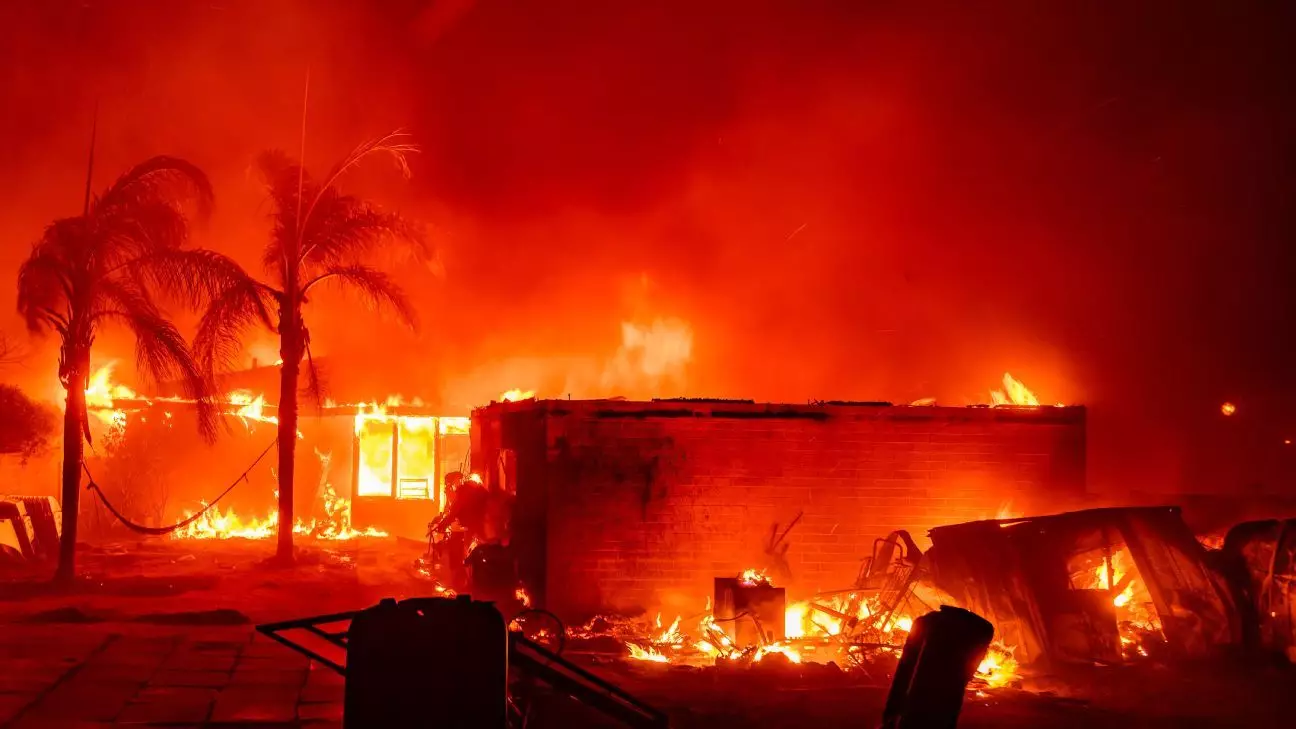Wildfires in Los Angeles have once again ignited fears not only for residents but also for the sporting community. Thousands have been forced to evacuate their homes as the ferocity of the flames worsens, leading to a significant decline in air quality throughout the region. As the community grapples with the devastation, the National Football League (NFL) finds itself in an unprecedented situation as it prepares for a critical wild-card playoff game between the Minnesota Vikings and the Los Angeles Rams at SoFi Stadium. With the smoke swirling around, the league is ready to act, even considering a move of the game to Arizona if conditions warrant such a drastic step.
The NFL has issued statements confirming its ongoing preparations for the playoff game, while simultaneously acknowledging the reality of the situation on the ground. If needed, the game could be relocated to State Farm Stadium in Glendale, Arizona — home to the Arizona Cardinals. This move wouldn’t be without precedent; in 2003, a similar relocation occurred when wildfires forced a matchup between the Miami Dolphins and San Diego Chargers to be played in Tempe, Arizona. The NFL’s proactive approach highlights the pressing nature of environmental challenges that can severely impact not just the game but also the players and fans involved.
Both the Rams and the Chargers are paying close attention to the health and well-being of their players and staff during this crisis. The Rams have reported that none of their team members have been directly affected by the wildfires, although the team is based in Woodland Hills, a relatively safe area situated north of Pacific Palisades. Star receiver Cooper Kupp articulated the team’s concern for those impacted by the flames, expressing gratitude towards first responders via social media.
On the other hand, the Chargers have been forced to take additional precautions by adjusting their practice schedule. This measure aims to mitigate players’ exposure to the harmful air quality, which has fluctuated alarmingly between “very unhealthy” and “hazardous” levels according to the air quality index. By splitting practice units, they aim to limit outdoor exposure, although some players continue to conduct specific drills.
The challenges posed by the wildfires go beyond sports, inciting a community-wide response. The Chargers organization has committed to providing $200,000 in targeted funding to various organizations aiding victims of the disaster, including the American Red Cross and LA Fire Department Foundation. This financial support serves as a testament to the team’s commitment to the community and highlights the interconnectedness of sports and pervasive social issues.
The Los Angeles Fire Department is also facing immense challenges in battling the blazes, with pleas for support from off-duty firefighters. Unfortunately, the human cost of these wildfires has already begun to manifest, with reported fatalities and injuries. As the flames rage on, the collective anxiety over the situation is palpable within the city.
The wildfires in Los Angeles are yet another manifestation of the broader implications of climate change. While California’s wildfire season traditionally spans from June to October, variations and extensions have begun to occur, leading to fires in January—a rare event that underscores changing environmental patterns. With rising temperatures and decreased rainfall prolonging the conditions that allow wildfires to thrive, the very fabric of the region’s seasonal climate is in flux.
The Western Fire Chiefs Association has shed light on the unfortunate reality that fires can now burn through the winter months, defying long-established patterns and making the months of July and August feel less remote in the hearts of residents worried about the future. The need for sustainable solutions has never been more urgent, not just for Los Angeles but for climate-dependent regions worldwide.
The wildfires raging through Los Angeles exemplify a broader issue that transcends sports. For the NFL, the decision to potentially relocate playoff games due to environmental crises raises important questions about the intersection between sports, safety, and climate change. As we monitor the escalating situation, it becomes clear that while the immediate focus is on ensuring the health of players and fans, the fires serve as a stark reminder of the growing threats posed by climate-driven disasters. The resilience of communities, the necessity of adaptive strategies, and the commitment of teams to support and uplift their cities take center stage as Los Angeles battles yet another wildfire crisis.

